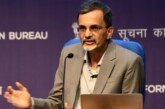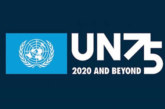
In the aftermath of the Japanese Prime Minister Shinzo Abe’s visit to India in January 2014, the pace of cooperation between the two countries at bilateral and regional levels has been gathering momentum. Currently, Japan and India are discussing the possibility of working together to advance regional economic cooperation in order to reinforce growth and accelerate development across the region. This can mark a major step forward in our global and strategic partnership and may envisage a way for new initiatives in strengthening bilateral development cooperation on the region level. Potential areas for future cooperation are as follows;
Overland Connectivity
Japan and India will study ways for cooperation in developing overland cross-border infrastructure facilities with the aim of enhancing regional connectivity. This includes:
- Exploring cooperation for development of roads, bridges and railway networks to increase the level of crossborder connectivity, thereby facilitating regional movement of people and goods. In this regard, India will identify potential fields of Japanese cooperation to cover India’s section in the proposed interregional highway project.
- Strengthening cooperation in the development of India’s North Eastern Region. This will cover such fields as road improvement, agriculture, forestry, and water supply and sewerage in the North Eastern states.
Sea Route Connectivity
Japan and India will study ways for cooperation in improving sea route connectivity between South Asia and Southeast Asia. This includes:
- A new project for port improvement in Chennai which will begin this year with Japan’s technical assistance as one of the steps toward the development of sea route connectivity
- Seeking possibilities for major port developments in India’s neighboring countries which will improve supply chain networks across the region.
- Advancing the Chennai Bangalore industrial Corridor project in order to set up a major industrial hub in South India linked with Southeast Asia by sea route network
JICA Regional Survey
JICA Data Collection Survey on Transport Infrastructure Development for Regional Connectivity in and around South Asia is underway and will submit a report soon to propose potential projects for future regional infrastructure development covering key counties in the region. Japan and India will increase the level of cooperation in energy sector in South Asia. This includes:
- Promoting energy related investment in the thermal power plant building project in Trincomalee, eastern part of Sri Lanka
- Exploring the possibilities for further cooperation in power sector in South Asia by enabling cost effective power generation and supply benefitting both India and countries in the region, particularly Sri Lanka.
- JapanSAARC Energy Symposium has been held in the SAARC region since 2006, the next symposium will be held in India. The symposium will bring together officials and experts from SAARC member countries and Japan, and offer an opportunity to discuss regional energy operation with Japanese technical knowledge and financial assistance.
EIBIJBIC Cooperation: The Export-import Bank of India and the Japan Bank for International Cooperation (JBIC) will jointly explore the possibility of financial assistance by JBIC in order to EIBI to strengthen EIBI’s Funding Sources to upgrade our collaboration in infrastructure development in the region.
Survey Series for Inclusive Initiatives
Japan and India’s Center for Policy Research (CPR) will jointly organize series of seminars in the region with local communities who will benefit from the regional development projects.
Coordination of Regional Economic Cooperation
In order to maximize the effects of cooperation, Japan and India will establish a working group / working groups so as to effectively manage regional economic cooperation projects. Government officials from both countries and development policy experts from JICA will attend.



